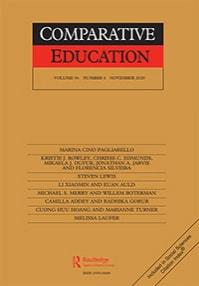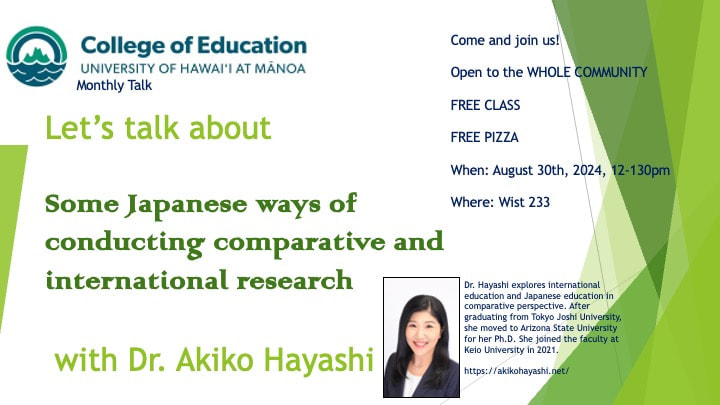ある「日本型」比較教育研究法 Some Japanese Ways of Conducting Comparative Educational Research

18年間の研究生活を振り返り、国際共同研究のチームメンバーは、取り上げなかったことで、日本人である私の目に留まったもの、そして、その目に留まったものを、どのように研究してきたのか。そこに傾向はあるかを検証したところ、「大事に」「素朴」「長い目」「集団性」と、4つの日本の概念が浮かび上がりました。これら一つ一つの概念を日本人哲学者、日本人社会学者、日本人生物学者が提唱した概念などと照らし合わせ、「日本型」比較教育研究法と称し、議論を進めています。
This personal, tentative, self-reflective essay explores some Japanese ways of conducting comparative educational research. In this essay, I not only describe a Japanese style of conducting comparative education research, but also do so in a Japanese way. The four key elements I discuss are: daijini (taking care), soboku (simplicity), nagaime (long perspective) and shuudan-sei and kanjin shugi (collectivism and contextualism). Like Rappleye’s and Takayama’s recent contributions in the 2020 special issue of this journal, my paper challenges the taken-for-grantedness of the Western philosophies, theories, and methods characteristic of Anglophone comparative educational scholarship. Like those contributions, this paper argues for the value Japanese perspectives hold for comparative educational research. For me, this means arguing for the value of research methods that are not inseparable from my being Japanese.
